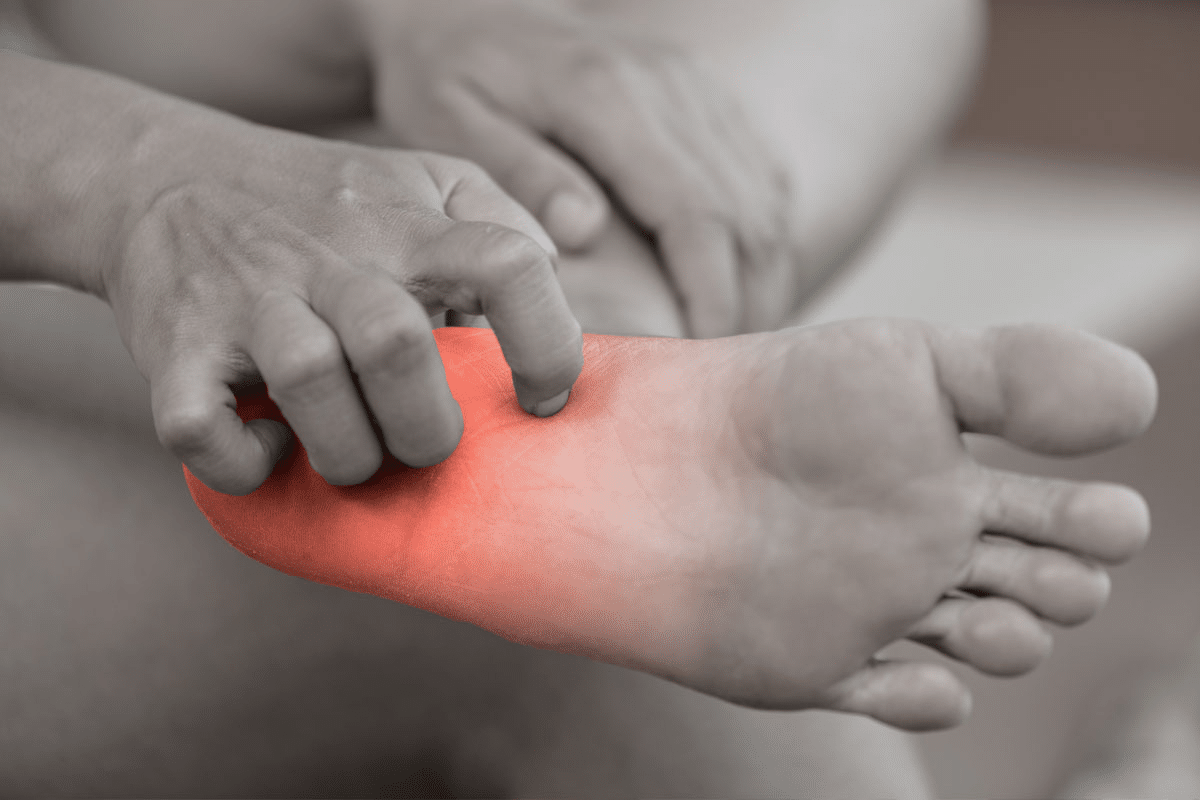
Can a sinus infection cause diarrhea? Learn about the connection and the signs that indicate a bacterial infection requiring antibiotics.
When you have a sinus infection, you might wonder if antibiotics are needed. Most sinus infections are caused by viruses and get better on their own. But, some might be bacterial and need medical help.
Many people get antibiotics when they don’t need them. This can lead to side effects like gastrointestinal issues. It’s important to know if your sinusitis is from a bacterial infection or a viral infection.
Knowing the cause helps in choosing the right treatment and avoiding too much medicine.
Key Takeaways
- Most sinus infections are viral and don’t require antibiotics.
- Bacterial sinus infections may need antibiotic treatment.
- Determining the cause of sinusitis is key for effective treatment.
- Unnecessary antibiotic use can lead to side effects like gastrointestinal issues.
- Understanding the difference between viral and bacterial infections is key to proper treatment.
Understanding Sinus Infections: Causes and Symptoms
The sinuses are air-filled spaces in the skull that can get infected. This leads to uncomfortable symptoms. Sinusitis, or sinus infection, affects millions globally. We’ll look into its causes, symptoms, and risk factors.
What Is Sinusitis and How Does It Develop?
Sinusitis happens when the sinuses’ lining gets inflamed or infected. This is often due to viruses or bacteria. The sinuses fill with fluid, causing congestion, pain, and more. Several factors can lead to sinusitis, including anatomical issues, allergies, and immune system problems. Knowing these causes helps in managing and treating it.
Common Symptoms of Sinus Infections
Sinusitis symptoms vary based on the infection’s severity and length. Common signs include:
- Nasal congestion and discharge
- Facial pain and pressure
- Headaches and fatigue
- Coughing and sore throat
- Loss of smell and taste
These symptoms can greatly affect daily life. It’s important to see a doctor if they don’t get better or get worse.
Risk Factors for Developing Sinusitis
Some people are more likely to get sinusitis due to certain risk factors. These include:
- Anatomical abnormalities, such as a deviated septum
- Allergies and allergic rhinitis
- Immune system disorders, such as HIV/AIDS or cystic fibrosis
- Respiratory infections, such as the common cold or flu
- Environmental factors, such as exposure to pollutants or tobacco smoke
Knowing and managing these risk factors can help prevent sinus infections. It can also improve your overall quality of life.
Viral vs. Bacterial Sinus Infections: Key Differences
It’s important to know the difference between viral and bacterial sinus infections. Both can have similar symptoms, but ey have different causes and treatments.
Characteristics of Viral Sinusitis
Viral sinusitis is the most common type of sinus infection. It often comes from a viral upper respiratory infection, like the common cold or flu. Usually, viral sinus infections get better on their own in a week or two without treatment. Symptoms are often mild and include a stuffy nose, facial pressure, and a runny nose.
Here are some important points:
- Over-the-counter decongestants and pain relievers can help.
- Antibiotics won’t work on viral infections.
- Rest, staying hydrated, and practicing good hygiene are key to getting better.
Signs of a Bacterial Sinus Infection
Bacterial sinusitis happens when bacteria infect the sinuses, often after a viral infection has weakened the immune system. Signs that your sinus infection might be bacterial include persistent or severe symptoms, such as:
- Long-lasting or severe nasal congestion.
- Thick, yellow or green nasal discharge.
- Severe headache or facial pain.
- Fever.
In these cases, antibiotics may be prescribed to treat the bacterial infection. Doctors usually only give antibiotics for severe, persistent, or clearly bacterial infections.
How Doctors Differentiate Between the Two
Doctors use a few methods to figure out if a sinus infection is viral or bacterial. They look at how long and how bad the symptoms are, and if there are specific signs like high fever or thick nasal discharge.
“The decision to use antibiotics should be based on a thorough assessment of the patient’s condition, considering both the likelihood of bacterial infection and the possible risks of antibiotic use.”
— IDSA Guidelines
Knowing the differences between viral and bacterial sinus infections helps us decide when to see a doctor and what treatment is best.
Can a Sinus Infection Cause Diarrhea? The Gut-Sinus Connection
Sinus infections can sometimes cause unexpected stomach problems, like diarrhea. This happens because of the close link between our sinuses and stomach. This connection is due to our body’s anatomy and how it reacts to infections.
The Post-Nasal Drip Mechanism
One way sinus infections affect our stomach is through post-nasal drip. When we have a sinus infection, our body makes more mucus to fight off germs. This extra mucus can flow down the back of our throat and into our stomach.
This can irritate our stomach and intestines, causing various stomach problems. The main issue is how our body reacts to the extra mucus and its impact on our digestion.
How Mucus Affects the Digestive Tract
The mucus from post-nasal drip does more than just irritate our stomach. It can actually change how our gut works. Swallowing this mucus can upset the balance of good bacteria in our gut.
- Mucus can change the pH levels in our stomach and intestines.
- It can provide a home for certain bacteria to grow.
- The extra mucus can irritate the lining of our gut, causing inflammation.
These changes can lead to symptoms like diarrhea, which is more common in people with stomach problems.
Who Is Most Susceptible to Digestive Symptoms
Not everyone with a sinus infection will have stomach problems. But some people are more likely to experience these issues:
- Those with stomach problems like IBS (Irritable Bowel Syndrome).
- People with weakened immune systems.
- Individuals with allergies or sensitivities that affect their stomach and sinuses.
Other Gastrointestinal Symptoms Associated with Sinusitis
Diarrhea is not the only stomach problem linked to sinus infections. Other symptoms include:
- Nausea and vomiting.
- Abdominal pain or discomfort.
- Bloating and gas.
These symptoms can be different in severity. They depend on the cause of the sinus infection and the person’s overall health.
When Antibiotics Are Necessary for Sinus Infections
Sinus infections often make us wonder if we need antibiotics. This decision is based on specific clinical guidelines. It’s important to know what makes doctors choose to prescribe antibiotics.
Clinical Guidelines for Antibiotic Prescription
Clinical guidelines are key in deciding on antibiotics for sinus infections. The American Academy of Allergy, Asthma, and Immunology says antibiotics are needed for bacterial sinusitis symptoms. These include persistent nasal discharge, facial pain, and fever.
We carefully check the severity and length of symptoms. We also look at any underlying conditions that might affect treatment.
Symptoms That Indicate Bacterial Infection
Knowing the signs of a bacterial infection is vital. Common signs include:
- Persistent nasal discharge or nasal congestion
- Facial pain or pressure
- Fever higher than 102°F (39°C)
- Purulent nasal discharge
- Worsening symptoms after initial improvement
These signs suggest a bacterial infection. This might need antibiotic treatment.
Duration-Based Decision Making
The length of symptoms is also important. If symptoms last more than 7-10 days or get worse after 5-7 days, antibiotics might be needed.
Special Considerations for High-Risk Patients
Some patients face higher risks from sinus infections. This includes those with weakened immune systems, respiratory issues, or a history of sinusitis. For these patients, we might start antibiotics sooner to avoid complications.
Patient Group | Risk Factors | Considerations for Antibiotics |
Immunocompromised | HIV/AIDS, chemotherapy, immunosuppressive therapy | Early antibiotic treatment to prevent complications |
Underlying Respiratory Conditions | Asthma, COPD, cystic fibrosis | Antibiotics considered for worsening symptoms or prolonged duration |
History of Recurrent Sinusitis | Frequent episodes of sinusitis | Antibiotics may be prescribed more readily to prevent further episodes |
By understanding these factors and following clinical guidelines, we can make informed decisions about when antibiotics are necessary for sinus infections. This ensures effective treatment while avoiding unnecessary antibiotic use.
The Risks of Unnecessary Antibiotic Use
Unnecessary antibiotic use poses serious risks to both individual and public health. It can cause a range of negative effects. These effects harm not just the person but also the community at large.
Antibiotic Resistance: A Growing Public Health Concern
One major risk is the rise of antibiotic resistance. When bacteria face antibiotics, they can become resistant. This makes infections harder to treat. It’s a big worry for public health because it can lead to more sickness, death, and higher healthcare costs.
The Centers for Disease Control and Prevention (CDC) calls antibiotic resistance a major challenge. They say over 2 million people in the U.S. get infected with resistant bacteria each year. This results in at least 23,000 deaths.
Potential Side Effects Including C. Difficile Infection
Unnecessary antibiotics can also cause side effects like Clostridioides difficile (C. difficile) infection. C. difficile can cause diarrhea, colitis, and other gut problems. Antibiotics can upset the balance of gut bacteria, letting C. difficile grow and cause infection.
The CDC says C. difficile is a big problem, hitting older adults and those with health issues hard. In the U.S., it’s estimated to cause nearly half a million infections a year.
Impact on Gut Microbiome
Antibiotics can mess with the gut microbiome. This is the mix of microorganisms in the gut. Antibiotics can upset this balance, affecting how the body processes food, fights off infections, and makes vitamins.
Studies show changes to the gut microbiome can lead to long-term problems. These include being more prone to infections, metabolic issues, and other health issues.
CDC Recommendations on Antibiotic Stewardship
To tackle these risks, the CDC suggests starting antibiotic stewardship programs. These programs aim to use antibiotics wisely, improve patient care, and fight antibiotic resistance.
The CDC’s Core Elements of Outpatient Antibiotic Stewardship offer a plan for healthcare providers. It includes making a commitment to stewardship, tracking antibiotic use, educating doctors and patients, and finding ways to better prescribe antibiotics.
CDC Recommendation | Description | Benefit |
Commit to Stewardship | Leadership commitment to improving antibiotic use | Improved patient outcomes |
Track and Report Antibiotic Prescribing | Monitoring and feedback on antibiotic use | Reduced antibiotic resistance |
Educate Clinicians and Patients | Education on appropriate antibiotic use | Better patient understanding and compliance |
Implement Interventions | Strategies to improve prescribing practices | Enhanced patient safety |
Effective Home Remedies for Managing Sinus Infections
Home remedies can help manage sinus infection symptoms well. Simple techniques can ease discomfort and help your body heal naturally.
Nasal Irrigation and Steam Therapy
Nasal irrigation clears mucus from your nose. Use a neti pot or a squeeze bottle with saline solution to rinse your sinuses. Make sure to use sterile or distilled water and clean your device well.
Steam therapy loosens mucus and eases congestion. You can get warm, moist air by taking a hot shower, inhaling steam from a bowl of hot water, or using a steam humidifier. Adding eucalyptus oil or menthol can make it even more effective.
Over-the-Counter Medications That Help
OTC medications can offer relief from sinus symptoms. Decongestants reduce nasal congestion, making breathing easier. They come in oral and nasal spray forms. Expectorants make mucus thinner, and pain relievers like acetaminophen or ibuprofen ease headaches and facial pain.
- Decongestants: Reduce nasal congestion
- Expectorants: Thin mucus for easier expulsion
- Pain relievers: Alleviate headache and facial pain
Hydration and Rest Strategies
Drinking enough water is key when fighting sinus infections. It thins mucus and keeps your sinuses moist. Water, herbal teas, and clear broths are good choices. Resting also helps your body fight off the infection.
- Drink at least 8-10 glasses of fluid per day
- Avoid caffeinated and sugary drinks that can dehydrate
- Use a humidifier to maintain a moist environment
Natural Remedies with Scientific Support
Some natural remedies can help with sinus symptoms. Quercetin, found in fruits and veggies, has anti-inflammatory effects. Probiotics boost gut health, which is good for your immune system.
But, talk to a doctor before trying new supplements, if you have health issues or take other meds.
When to See a Doctor About Your Sinus Infection
Knowing when to see a doctor about your sinus infection is key to getting better. Sinus infections can be mild or severe. Some may get better on their own, but others need medical help to avoid serious problems.
Warning Signs That Require Medical Attention
Some symptoms mean you need to see a doctor right away. These include:
- Severe headache or facial pain
- High fever that doesn’t go away or gets worse
- Thick, yellow or green nasal discharge
- Difficulty breathing or feeling short of breath
- Swelling around the eyes or changes in vision
If you notice any of these signs, you should get medical help fast. The CDC says untreated severe sinus infections can cause serious problems.
“Sinusitis can be a serious condition, leading to meningitis, osteomyelitis, or abscesses. Getting medical help quickly is important for severe cases.”
Source: American Academy of Allergy, Asthma, and Immunology
What to Expect During Your Doctor’s Visit
At your doctor’s visit for a sinus infection, you’ll get a full check-up. This usually includes:
- Talking about your medical history to find any underlying issues
- A physical exam, possibly a nasal endoscopy
- Talking about your symptoms and how long you’ve had them
Your doctor will use this info to figure out if your infection is viral or bacterial. This helps decide how to treat you.
Tests Used to Diagnose Sinusitis
Doctors use several tests to accurately diagnose sinusitis. These include:
Test | Purpose |
Nasal Endoscopy | Looks at the nasal passages and sinuses |
Imaging Tests (X-rays, CT scans) | Shows the sinuses and finds any problems |
Allergy Testing | Finds allergies that might cause sinusitis |
These tests help doctors tell if your infection is viral or bacterial. They also check for any complications.
Questions to Ask Your Healthcare Provider
To get the best care for your sinus infection, ask your doctor these questions:
- What is the likely cause of my sinus infection?
- Do I need antibiotics, and if so, what kind?
- What are the possible complications if I don’t get treated?
- Are there any home remedies or over-the-counter treatments that can help?
Being informed and asking the right questions helps you get through your treatment and recovery better.
Preventing Recurrent Sinus Infections
To lower the chance of getting sinus infections again, we need a solid plan. Knowing and using different ways to prevent them can really help. This way, we can cut down on getting sinusitis.
Environmental Modifications
Changing our surroundings is key to avoiding sinus infections. We can do this by:
- Using air purifiers to clean the air of allergens and pollutants
- Keeping our homes clean and free of dust
- Staying away from tobacco smoke and strong smells
These easy steps help make our environment healthier. It’s less likely to get sinus infections in such a setting.
Immune System Support
A strong immune system is vital for fighting off infections, like sinusitis. To keep our immune system strong, we should:
- Eat a diet full of fruits, veggies, and whole grains
- Stay active to boost our immune system
- Get enough sleep for our body to heal and recharge
By taking care of our immune system, we can better fight off sinus infections.
Managing Allergies and Underlying Conditions
For those with allergies or health issues, it’s important to manage them well. This means:
- Creating a good plan with a healthcare provider to handle allergies
- Treating conditions like GERD or physical issues
- Following the doctor’s advice for treatments
By managing allergies and health issues, we can lower the risk of sinus infections.
Lifestyle Factors That Reduce Sinus Infection Risk
There are also lifestyle changes that can help prevent sinus infections. These include:
- Drinking plenty of water to thin out mucus
- Avoiding diving or swimming in dirty water
- Practicing good hygiene, like washing hands often
By making these lifestyle changes, we can further reduce the risk of getting sinus infections again.
Conclusion: Making Informed Decisions About Sinus Infection Treatment
Knowing if you need antibiotics for a sinus infection is key. We’ve looked at the differences between viral and bacterial sinus infections. This helps you make smart choices about treatment.
Most sinus infections are viral and get better by themselves. But, bacterial infections need antibiotics. By knowing the symptoms and causes, you can start making better choices for your health.
We talked about home remedies like nasal irrigation and steam therapy. These can help with sinus infections. We also stressed the need to know when to see a doctor and how to avoid getting infections again.
By following the advice in this article, you can work with your doctor to find the right treatment. Making smart choices about your health is important. It helps you get better and avoid serious problems.
FAQ
Does a sinus infection need antibiotics?
Not always. Most sinus infections are caused by viruses, and antibiotics work only on bacteria. We decide if you need antibiotics based on how long and bad your symptoms are.
Can a sinus infection cause diarrhea?
Yes, it can. Sinus infections might make you feel sick to your stomach, like having diarrhea. This happens because of the mucus that drips down your throat and into your stomach.
How to prevent sinus infections?
To avoid sinus infections, start by changing your environment. Use air purifiers and humidifiers. Also, eat well, exercise, and manage allergies.
When to see a doctor about a sinus infection?
See a doctor if your symptoms get worse, last more than 7-10 days, or if you have a bad headache, facial pain, or fever. We can check how serious your infection is and tell you what to do next.
Is a sinus infection a bacterial or viral infection?
Sinus infections can be either. Most are viral, but sometimes they’re bacterial, like if your symptoms don’t get better or get worse. We use guidelines to figure out the cause.
What are the best ways to reduce sinus pressure?
To ease sinus pressure, try nasal irrigation, steam therapy, and over-the-counter decongestants and pain relievers. Drinking lots of water and resting also helps.
When does a sinus infection need antibiotics?
You’ll need antibiotics if your infection is bacterial. This means if your symptoms are really bad or last more than 7-10 days.
How to get rid of nasal inflammation?
To reduce nasal inflammation, use nasal irrigation, saline sprays, and avoid things that irritate your nose. Decongestants and antihistamines can also help.
Should you go to the doctor for a sinus infection?
Yes, if your symptoms are severe, don’t go away, or get worse. We can check your condition and give you the right treatment to avoid bigger problems.
What are the risks of unnecessary antibiotic use?
Using antibiotics when you don’t need them can cause antibiotic resistance. This is a big health problem. It can also lead to side effects like C. difficile infection and upset your gut.
How do you prevent recurrent sinus infections?
To stop sinus infections from coming back, make environmental changes, support your immune system, manage allergies and other conditions, and live a healthy lifestyle.
References
- National Center for Biotechnology Information. (2025). How to Tell If You Need Antibiotics for. Retrieved from https://www.ncbi.nlm.nih.gov/books/NBK547701/









